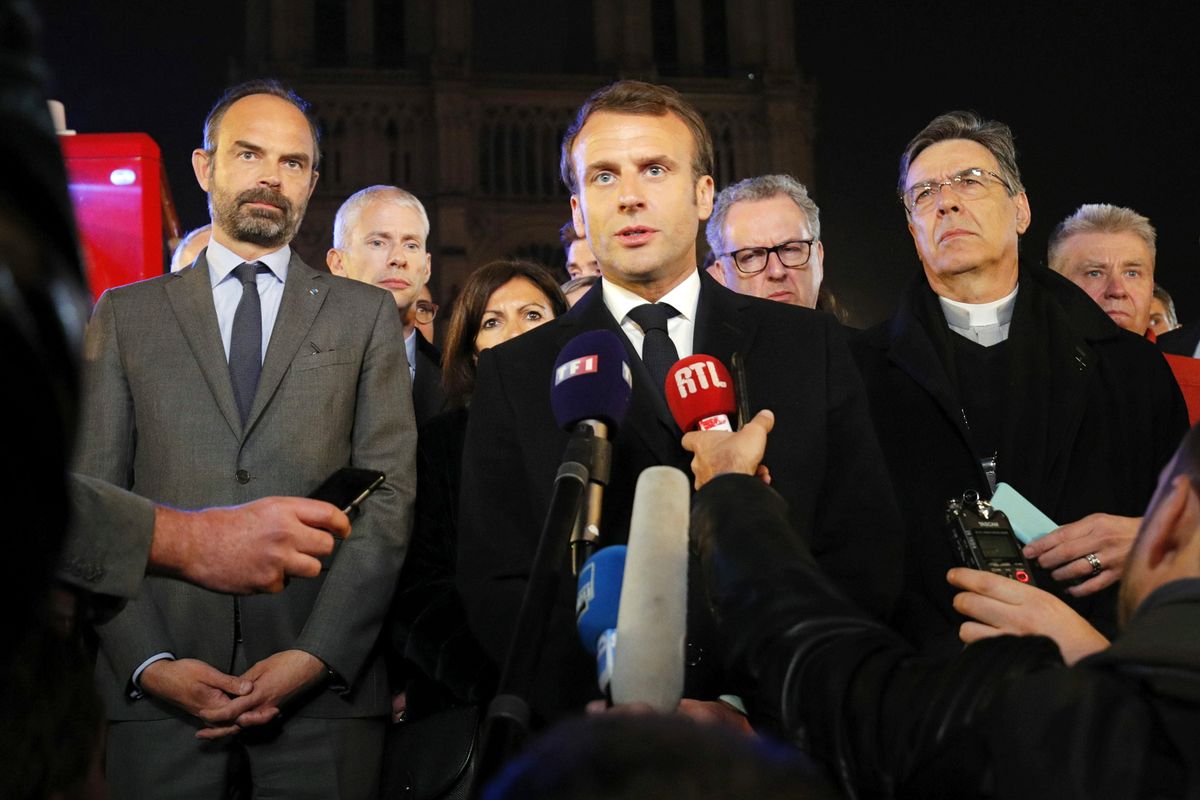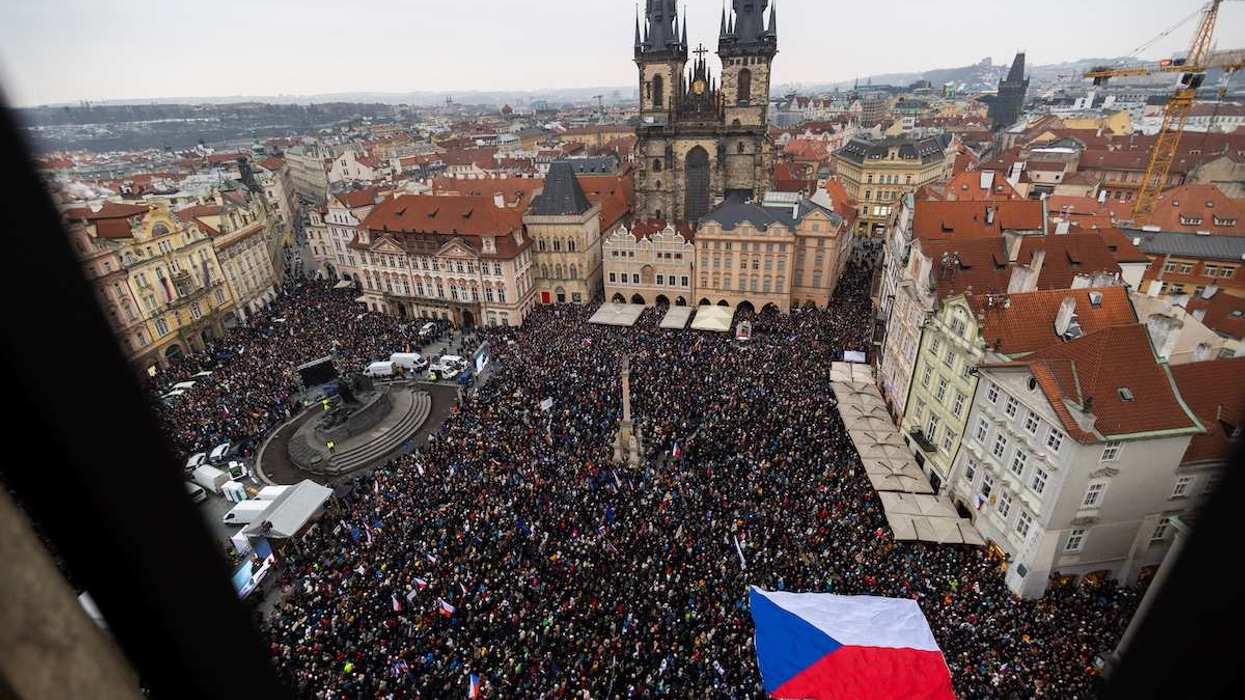It's no wonder so many people across Europe and around the world felt shock and sorrow at images of Notre-Dame in flames. So many have been there. On an average day, 30,000 people step inside the cathedral to worship or soak in centuries of history. That's 14 million people a year. As French writer Bernard-Henri Levy wrote on Tuesday, Notre-Dame is "a treasure of civilization, for those who believe in heaven and for those who don't."
Of course, this loss is much more personal for citizens of France. Centuries ago, distances were calculated in many countries from "point zero," a marker embedded in a location that represents the heart of the nation. In France, point zero is found in the paving stones just outside the entrance to Notre-Dame. For many, Notre-Dame is the (still) beating heart of France.
It's inevitable that this fire, and reconstruction of the cathedral, will become a central reference point for French politics in the coming days and months, creating both risks and opportunities across the political spectrum.
Critics of President Emmanuel Macron call him aloof and imperious. But outside the cathedral on Monday, he spoke with credible emotion about Notre-Dame's importance for France and the urgent need to rebuild. Last night, he called for the nation to mobilize and rebuild the cathedral "even more beautifully" within 5 years, saying it was up to "up to us to transform this disaster into an opportunity to come together."
The fire ignited just hours before Macron was to address the nation on the recent wave of "gilets jaunes" protests across France and what they've taught him. He now has an opportunity to strike a more personal tone and rally public support for the government. Tuesday's speech was a step in that direction, but Macron must be careful in the coming week not to inject politics into a story that's deeply personal for many in France.
The "gilets jaunes," a diverse collection of people from all age groups and political backgrounds, have earned considerable public support with protests aimed at unresponsive government. But critics charge the movement has been hijacked by people more interested in inflicting property damage than in political change. The disaster at Notre-Dame may poison attitudes toward property destruction, at least for a while.
Finally, this disaster lands in the middle of an election campaign for the European Parliament, and Marine Le Pen, leader of the far-right National Rally party, will look for every opportunity to draw votes from Macron and other opposition parties.
She may argue that the Notre-Dame fire is the predictable result of a negligent government that spends too much on immigrants and "European" projects while neglecting to protect symbols of the French nation.
Or, like Macron, she may find that using Notre-Dame to win votes is playing with fire.



















